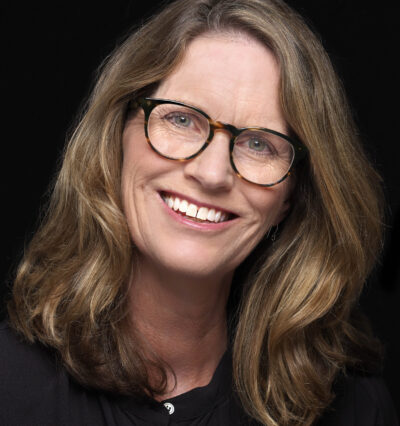Dear Friends,
Even as I have launched the new online community, the Numbering Your Days Network to offer gospel-centered encouragement and equipping around challenges of aging, caregiving, legacy, grief, and end-of-life, I always encourage in-real-life community as the best community.
“Visible community is grace.”[i] As theologian and pastor Dietrich Bonhoeffer sat imprisoned by the Nazis during World War II, he penned these poignant words. Face-to-face fellowship is a foretaste of the day when God will “gather us in…for [he] has redeemed us” (Zechariah 10:8-9). As members of the body of Christ, we must see one another, speak to one another, hear one another, and touch one another, because we “belong to one another only through and in Jesus Christ.”[ii] While visible community is essential, it may be harder for the aging to experience. You may have heard that there is an “epidemic of loneliness” in our country, and as with other plagues, this one hits the aging especially hard.
Spencer Morgan writes about his neighbor and friend, Mr. MacDonald, who strolled over one afternoon when Morgan was playing with his daughter in his front yard. Mr. MacDonald explained that the neighborhood had changed, with longtime friends dying and others moving away to be closer to family or to receive care in assisted living. Mr. MacDonald said he could no longer participate in hobbies he once enjoyed, because his eyesight and hearing were failing.[iii] Mr. MacDonald is not alone. For many seniors, the limitations of old age, like hearing and vision loss, as well as loss of the ability to drive, can lead to loneliness. In addition to these losses, seniors lose spouses and friends to death or to a move, and before they realize what is happening, their world has shrunk.
For the “roughly 43% of Americans 60 and over”[iv] who report loneliness, the impact can be startling: “[In the general population], research has consistently shown that isolation is linked to depression and anxiety. It has also been shown to lead to premature mortality, worsen cardiovascular health, increase inflammation, and disrupt hormones and sleep.”[v] The effects of loneliness are worse for the aging, and for this reason, experts note that social connection is crucial healthcare: “While access to good health care and nutrition are essential to physical health in older people, social connections may be just as important.”[vi] In fact, Nicholas R. Nicholson, in his “Review of Social Isolation,” observes that “Those frequently attending religious services …have lower mortality rates than those with infrequent attendance.”[vii]
The gospel has great news to offer the lonely of all ages. Jesus is the “friend of sinners,” (Matthew 11:19), so no one ever needs to be fully alone. Not only that, the gospel calls us to live in the visible community Bonhoeffer described. Hebrews 10:24-25 exhorts us, “And let us consider together how we may spur one another on toward love and good deeds, not giving up meeting together, as some are in the habit of doing, but encouraging one another, and all the more as you see the Day approaching.” Bonhoeffer explains, “But God put his Word into the mouth of human beings so that it may be passed on to others…. God has willed that we should seek and find God’s living Word in the testimony of other Christians.”[viii] Because the “Christ in my heart is weaker than the Christ in the word of other Christians,”[ix] we desperately need to hear our sister in Christ sharing her favorite verse and how it has encouraged her. We desperately need to hear our brother’s confession of irritability and need for prayer. As we remind our dear brother, “There is therefore now no condemnation for those who are in Christ Jesus” (Romans 8:1), we too are reminded of the hope we have in Christ. We need to hear the word preached and taught by faithful pastors and ministry leaders.
Studies have shown that unhappiness and loneliness increase in those who do not regularly attend religious services, and based on Bonhoeffer’s words about visible community, we can probably guess why. Visible community is indeed grace, and it lifts up the lonely heart by bringing the friendship of Christ. If church and companionship is essential to addressing the loneliness of the aging, then our churches must think wisely about how to bring this visible community to our seniors. Here are ten ways to make sure seniors stay connected to the body of Christ:
We can encourage our able seniors to stay active and present in church, and we can model that urgency by staying present ourselves.
We can seek to ensure that every individual who wants to be in worship and other church activities has a way to get there.
For those who are unable to leave home or assisted living, we must go to them, visiting and sharing the means of grace.
When seniors are unable to receive visitors because of illness and potential for infection, we can call, preferably by video.
We can also write letters, sending Scripture and prayers to those in isolation.
Remind them that “they still bear fruit in old age” (Psalm 92:14), and invite them to be involved in activities that serve others as their abilities allow: cooking, mentoring, praying, writing letters to prisoners, etc.
Since limitations on hearing and vision can cause seniors to isolate, we could arrange for local healthcare agents to offer hearing and vision tests at our churches.
Invite seniors to a meal or bring a meal and dine with them at their home or assisted living facility. Because feasting is a biblical act with great significance, eating together is an essential way to deepen fellowship.
We often forget that seniors who live alone may not experience much physical touch. Not only have studies shown that appropriate physical touch increases a sense of well-being, we are called to show friendly affection as brothers and sisters in Christ: “Greet one another with a holy kiss” (Romans 16:16).
We are called to care for widows, and doing so means that we will take note of who has recently lost a significant friend or family member and make sure we reach out in many of the ways already listed.
Because God has created the church to be a visible community, we must by the power of the Holy Spirit, think intentionally about the problem of loneliness in the aging. How might you offer the friendship of Jesus today?
If you would like to join the Numbering Your Days Network, a free online community with biblical resources for the issues of aging, caregiving, legacy, and end-of-life, please use this link: https://numberingyourdaysnetwork.mn.co/share/B5q0dGGIOR0f996K?utm_source=manual
[i] Bonhoeffer, Dietrich. Life Together and Prayerbook of the Bible: Dietrich Bonhoeffer Works Vol. 5. Minneapolis: Fortress Press, 2004, 32.
[ii] Bonhoeffer, 32.
[iii] Sepncer Morgan, “Youths, Go Listen to Your Elders,” at https://www.nytimes.com/2019/06/08/style/helping-senior-citizens.html.
[iv] Faith Hill, “The Curious Personality of Old Age,” https://www.theatlantic.com/family/archive/2023/07/old-age-personality-brain-changes-psychology/674668/.
[v] Arthur C. Brooks, “How We Learned to Be Lonely,” at https://www.theatlantic.com/family/archive/2023/01/loneliness-solitude-pandemic-habit/672631/.
[vi] By Jessica Lahey and Tim Lahey, “How Loneliness Wears on the Body,” at https://www.theatlantic.com/health/archive/2015/12/loneliness-social-isolation-and-health/418395/.
[vii] Nicholas R. Nicholson, “A Review of Social Isolation,” at https://www.researchgate.net/profile/Nicholas-Nicholson-4/publication/228330427_A_Review_of_Social_Isolation_An_Important_but_Underassessed_Condition_in_Older_Adults/links/647a41fa2cad460a1bee3dd7/A-Review-of-Social-Isolation-An-Important-but-Underassessed-Condition-in-Older-Adults.pdf.
[viii] Bonhoeffer, 32.
[ix] Bonhoeffer, 32.





